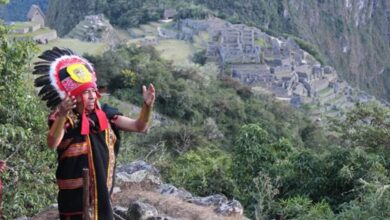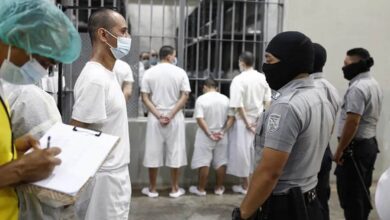Fishermen Blockade Key in Legal Battle Against Major Copper Mine
A group of 16 fishing boats in Panama has halted operations at First Quantum Minerals' major copper mine, demanding the annulment of the Canadian company's contract

Photo: Pexels
The Latin American Post Staff
Escucha este artículo
Leer en español: El bloqueo de los pescadores es clave en la batalla legal contra una importante mina de cobre
Fishing Boat Blockade Key Panamanian Port
In a remarkable display of grassroots activism, a flotilla of 16 fishing boats has been blockading a key Panamanian port for over a month. This blockade has choked off coal and essential supplies to First Quantum Minerals' giant copper mine in Panama, eventually leading to a shutdown of operations at the mine, the company's largest revenue source.
This marine protest adds significant momentum to the ongoing public outcry in Panama. Thousands of Panamanians have been taking to the streets, marching daily to demand the annulment of the Canadian miner's contract. They argue that First Quantum's operations violate Panama's sovereignty and severely threaten the environment.
The fishermen's grievances are rooted in the belief that the company has overstepped its bounds by appropriating resources, land, and water. They also express deep concerns about the environmental impact of the mine. In response, Cobre Panama, a part of First Quantum Minerals, has asserted its commitment to ecological stewardship, promising to cultivate more new forests than the mine impacts.
Constitutional Violation and Mine Shutdown
However, the government's stance has shifted dramatically. Panama's top court declared First Quantum's contract unconstitutional, and the President announced an orderly mine shutdown. Despite this, protesters on land and sea remain vigilant, insisting that authorities take concrete steps to ensure the mine's closure.
The potential complete shuttering of the mine, which is responsible for about 1% of the global copper output and contributes 5% to Panama's GDP, would be a significant victory for the protesters. It would symbolize a David vs. Goliath triumph in a country known for its business-friendly environment.
The impact of these protests is far-reaching. The grassroots movement has led to a staggering C$11 billion ($7.4 billion) decrease in First Quantum's market value. This decline and the mine's closure have raised global concerns about copper supply. Copper is a crucial metal, particularly in international efforts to reduce reliance on fossil fuels and move towards electrification.
Environmental Concerns and National Sovereignty
This scenario in Panama is more than a local dispute; it reflects a growing global trend where environmental concerns and national sovereignty are increasingly influencing business operations. The conflict highlights the delicate balance between economic development, environmental sustainability, and local communities' rights.
The situation at First Quantum Minerals' copper mine in Panama also underscores the changing dynamics of resource extraction industries. Companies in such sectors face increased scrutiny and resistance as the world becomes more conscious of environmental impacts and community rights. This shift demands a new approach to resource extraction that is more sustainable and respectful of local communities and environments.
Furthermore, the protests in Panama shed light on the power of collective action. The fishermen's blockade, supported by widespread public protests, has impacted a major international company and brought attention to broader issues of environmental conservation and national autonomy. This movement serves as a testament to the potential impact of grassroots activism in shaping corporate practices and national policies.
Lessons for Corporate Practices and Policies
As the situation in Panama continues to unfold, it highlights the complexities of modern global business. It poses significant questions about the responsibilities of multinational corporations, the rights of local communities, and the role of governments in mediating these interests. The outcome of this standoff will likely have implications far beyond the borders of Panama, influencing corporate strategies and environmental policies worldwide.
Also read: Panama's Uprising Against Mining Leads to Legislative Action
In conclusion, the blockade and protests in Panama against First Quantum Minerals' copper mine represent a significant moment in the global discourse on resource extraction, environmental conservation, and community rights. The situation is a powerful reminder of the need for responsible and sustainable business practices that align with the interests of local communities and the global environment. As the world watches, the resolution of this conflict will offer valuable lessons for corporations, governments, and activists alike.




